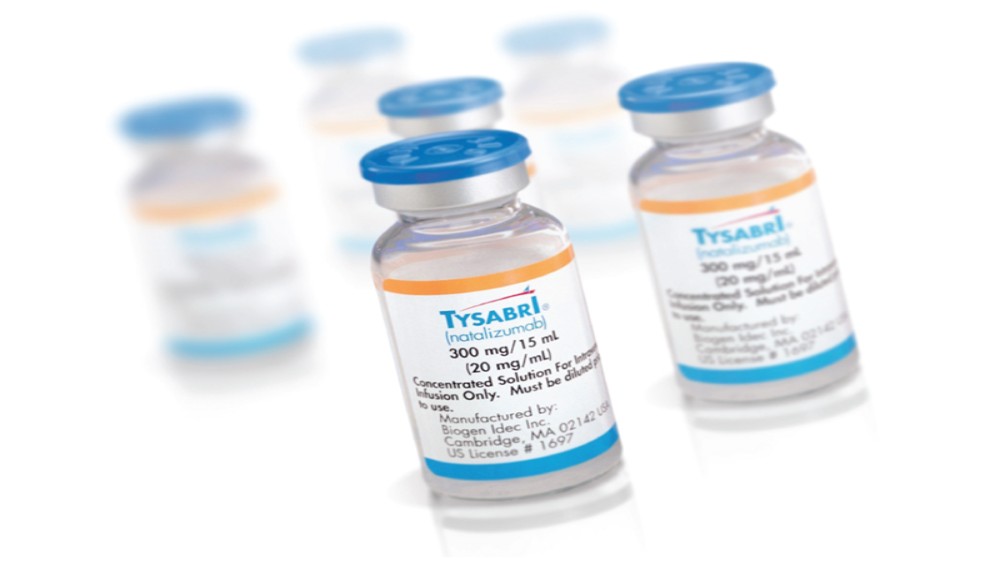Tysabri: Innovative MS Therapy for Improved Quality of Life
 Multiple Sclerosis (MS) is a chronic, often disabling disease that affects the central nervous system, impacting the brain, spinal cord, and optic nerves. Over the years, advancements in medical science have introduced innovative treatments aimed at managing the symptoms and slowing disease progression. One such breakthrough therapy is Tysabri, a powerful medication designed to improve the quality of life for individuals living with MS.
Multiple Sclerosis (MS) is a chronic, often disabling disease that affects the central nervous system, impacting the brain, spinal cord, and optic nerves. Over the years, advancements in medical science have introduced innovative treatments aimed at managing the symptoms and slowing disease progression. One such breakthrough therapy is Tysabri, a powerful medication designed to improve the quality of life for individuals living with MS.
What Is Tysabri?
Tysabri, scientifically known as natalizumab, is a monoclonal antibody used to treat relapsing forms of Multiple Sclerosis, including relapsing-remitting MS (RRMS). It is prescribed to patients whose condition does not respond adequately to other disease-modifying therapies. The primary goal of Tysabri is to reduce the frequency of MS relapses and delay the progression of physical disability by preventing immune cells from attacking the myelin sheath—a protective layer covering nerve fibers.
How Does Tysabri Work?
Tysabri works by targeting a specific protein called alpha-4 integrin. This protein plays a critical role in the movement of immune cells across the blood-brain barrier into the central nervous system. By binding to alpha-4 integrin, Tysabri prevents harmful immune cells from entering the brain and spinal cord, thereby reducing inflammation and damage to nerve cells.
The Role of Tysabri Infusion
Unlike many oral MS treatments, Tysabri infusion is administered intravenously, typically once every four weeks. Each infusion takes approximately one hour, and the process is carefully monitored by healthcare professionals to ensure patient safety and comfort. The infusion approach allows for precise dosage control and ensures that the medication enters the bloodstream effectively, maximizing its therapeutic impact.
The prescribed Tysabri dose varies based on individual patient needs but is generally 300 mg per infusion. Physicians determine the exact dosing schedule based on the patient’s weight, medical history, and disease progression. Regular infusions help maintain stable drug levels in the body, providing consistent protection against MS attacks.
Benefits of Tysabri Therapy
Tysabri offers several advantages for MS patients, particularly those who have not achieved satisfactory results from other treatments:
- Reduction in Relapse Rate: Clinical studies have shown that Tysabri significantly reduces the annual relapse rate compared to placebo treatments.
- Slowed Disability Progression: Tysabri helps delay the worsening of physical disability, allowing patients to maintain better mobility and independence over time.
- Improved MRI Outcomes: MRI scans often show fewer new or enlarging brain lesions in patients undergoing Tysabri therapy.
Most importantly, many patients report an improved quality of life, thanks to fewer relapses and better symptom management.
Understanding the Side Effects of Tysabri
Like all powerful medications, Tysabri comes with potential risks. It is essential for patients and caregivers to be aware of the Tysabri side effects and the comprehensive Tysabri touch program designed to ensure safe use.
Common Side Effects of Tysabri
- Headache
- Fatigue
- Joint pain
- Nausea
- Urinary tract infections
These side effects are usually mild and manageable, but patients are advised to report any unusual symptoms to their healthcare provider immediately.
Serious Risks: PML
The most significant risk associated with Tysabri is a rare but serious brain infection called Progressive Multifocal Leukoencephalopathy (PML). PML occurs due to the reactivation of the John Cunningham (JC) virus in the brain, especially in patients with weakened immune systems.
To mitigate this risk, patients on Tysabri must be enrolled in the Tysabri touch program—a comprehensive risk management and monitoring strategy. The program includes regular MRI scans, blood tests for JC virus antibodies, and ongoing clinical assessments to detect any early signs of complications.
The Tysabri Touch Program
The Tysabri touch program is a critical component of patient safety. This program ensures that both patients and healthcare providers adhere to strict monitoring guidelines designed to reduce the risk of PML and other adverse effects. It provides structured support, regular testing, and clear communication pathways between patients and care teams.
Is Tysabri Right for You?
Tysabri is generally prescribed for individuals with moderate to severe MS who have not responded well to other treatments. Before initiating therapy, patients undergo a comprehensive evaluation, including testing for JC virus antibodies, assessing overall health, and discussing medical history.
While Tysabri offers significant benefits, it is not suitable for everyone. Pregnant or nursing women, people with active infections, or those with certain pre-existing conditions may not be ideal candidates.
Frequently Asked Questions (FAQs)
1. How often is Tysabri administered?
Tysabri is administered via infusion once every four weeks, with each session typically lasting around one hour.
2. What is the usual Tysabri dose?
The standard Tysabri dose is 300 mg per infusion, but individual treatment plans may vary based on the patient’s weight and condition.
3. What are the most common side effects of Tysabri?
Common Tysabri side effects include headache, fatigue, nausea, joint pain, and urinary tract infections.
4. What is the Tysabri touch program?
The Tysabri touch program is a safety program designed to monitor patients for serious risks such as PML through regular tests and assessments.
5. Can Tysabri cause serious complications?
Yes, a rare but serious side effect is Progressive Multifocal Leukoencephalopathy (PML), which requires close monitoring through the Tysabri touch program.
Experience advanced MS therapy with Tysabri. Visit our website https://americaninfusioncare.com/treatment-and-care/available-therapies/ now or call us at +1 214-831-9696 to learn more about treatment options!
